Effective time management is crucial for success in both personal and professional aspects of life. It helps us to prioritize our tasks, maximize productivity, and achieve our goals. However, managing time is easier said than done. With so many distractions and demands on our time, it can be challenging to stay focused and productive.
Fortunately, there are many resources available to help us improve our time management skills. In this article, we have compiled a list of the 10 best time management books for 2023 that are filled with practical strategies and time-saving secrets to help you get the most out of your day. These books have been carefully selected based on their relevance, popularity, and effectiveness, and are perfect for anyone looking to take their time management skills to the next level.
Whether you’re a student, a working professional, an entrepreneur, or just someone who wants to make the most out of their time, these books will provide you with valuable insights and tips to help you manage your time more effectively. So, without further ado, let’s dive into the 10 best time management books for 2023!
1. “Getting Things Done: The Art of Stress-Free Productivity” by David Allen

David Allen’s “Getting Things Done” is a classic book on time management that has been around for over a decade. This book provides a practical and straightforward approach to organizing your work and life. The author’s premise is that the human mind is a lousy storage system, and it’s better to capture and process all tasks and projects outside the mind to free up mental space.
The book presents a five-step process for achieving stress-free productivity. These five steps are capture, clarify, organize, reflect, and engage. By following this process, you can learn to focus on the most critical tasks, reduce stress, and achieve more in less time.
2. “Atomic Habits: An Easy & Proven Way to Build Good Habits & Break Bad Ones” by James Clear

“Atomic Habits” by James Clear is a recent bestseller on time management and personal development. The book explores the idea that small habits, when practiced consistently, can lead to significant changes in our lives. Clear presents a four-step framework for building and breaking habits: cue, craving, response, and reward.
The book is full of practical advice and actionable tips on how to create new habits, break bad ones, and sustain positive changes in our lives. By focusing on small and incremental improvements, readers can achieve significant results in their personal and professional lives.
3. “The One Thing: The Surprisingly Simple Truth Behind Extraordinary Results” by Gary Keller and Jay Papasan
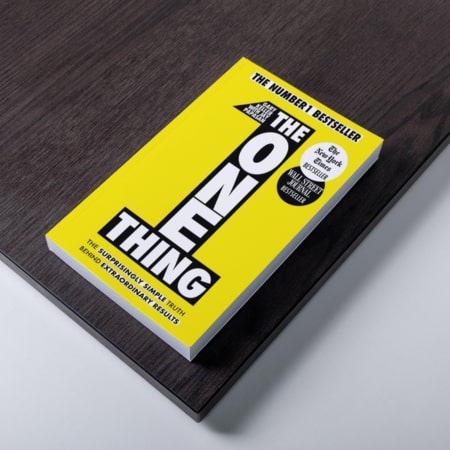
“The One Thing” by Gary Keller and Jay Papasan is a book that challenges the idea of multitasking and encourages readers to focus on the one thing that matters most. The book’s central premise is that by focusing on the most critical task or goal, we can achieve extraordinary results.
The book presents a framework for identifying the one thing that matters most and eliminating distractions and obstacles that get in the way. By following this approach, readers can prioritize their time and energy and achieve more significant results in their personal and professional lives.
4. “Eat That Frog!: 21 Great Ways to Stop Procrastinating and Get More Done in Less Time” by Brian Tracy
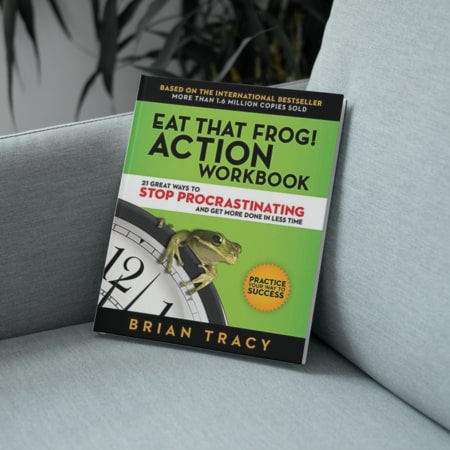
“Eat That Frog!” by Brian Tracy is a classic book on time management and productivity. The book’s title comes from a quote by Mark Twain, “Eat a live frog first thing in the morning, and nothing worse will happen to you the rest of the day.” Tracy argues that the frog represents the most challenging and most important task of the day, and by completing it first, we can accomplish more throughout the day.
The book provides twenty-one practical techniques for overcoming procrastination, prioritizing tasks, and managing time more effectively. By implementing these techniques, readers can overcome their tendencies to procrastinate and achieve more in less time.
5. “The 4-Hour Work Week: Escape 9-5, Live Anywhere, and Join the New Rich” by Timothy Ferriss
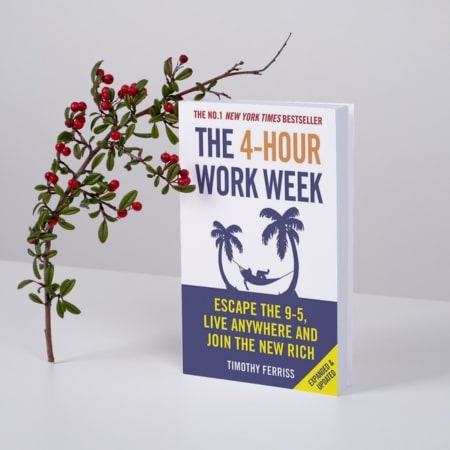
“The 4-Hour Work Week” by Timothy Ferriss is a book that challenges the traditional work ethic and encourages readers to design their lives around their passions and interests. The book presents a four-step process for achieving a more fulfilling and productive life: definition, elimination, automation, and liberation.
Ferriss argues that by defining our goals and priorities, eliminating unnecessary tasks and distractions, automating repetitive processes, and liberating ourselves from the traditional 9-5 work model, we can create a more fulfilling and productive life. The book is full of practical advice and case studies of people who have successfully implemented these techniques.
6. “Deep Work: Rules for Focused Success in a Distracted World” by Cal Newport

“Deep Work” by Cal Newport is a book that explores the idea that the ability to focus deeply on tasks is becoming increasingly rare in today’s world of constant distractions. Newport argues that deep work, or the ability to concentrate on a single task for an extended period, is the key to success in many fields.
The book provides a framework for achieving deep work, including techniques for minimizing distractions, creating a distraction-free workspace, and scheduling time for deep work. By following these strategies, readers can improve their ability to focus and achieve more significant results in their work and personal lives.
7. “The Power of Habit: Why We Do What We Do in Life and Business” by Charles Duhigg
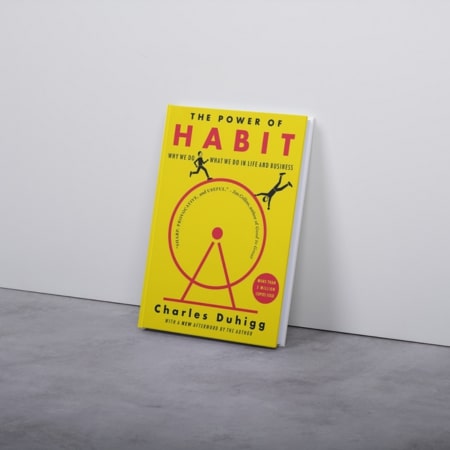
“The Power of Habit” by Charles Duhigg is a book that explores the science behind habits and how we can use this knowledge to improve our lives. The book presents a three-step process for changing habits: identifying the cue, changing the routine, and rewarding the behavior.
Duhigg argues that by understanding the psychology behind habits and using this knowledge to create new and positive habits, we can improve our productivity, health, and relationships. The book is full of real-life examples of people who have successfully changed their habits and achieved significant results.
8. “Smarter Faster Better: The Secrets of Being Productive in Life and Business” by Charles Duhigg

“Smarter Faster Better” by Charles Duhigg is a book that explores the science of productivity and how we can use this knowledge to achieve more significant results in our lives. The book presents eight productivity concepts, including motivation, goal setting, decision making, and focus.
The book is full of practical advice and case studies of people who have successfully implemented these concepts to improve their productivity and achieve their goals. By understanding the science behind productivity and applying these concepts to our lives, we can achieve more in less time and create a more fulfilling and successful life.
9. “The 7 Habits of Highly Effective People: Powerful Lessons in Personal Change” by Stephen R. Covey
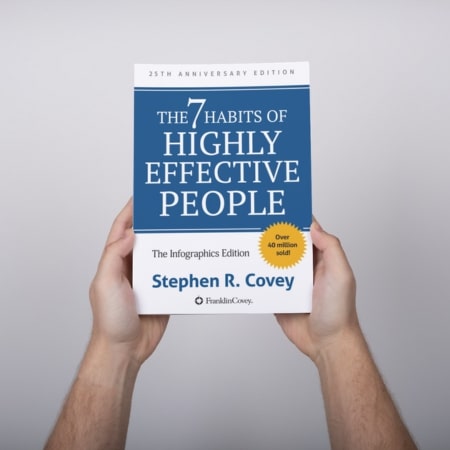
“The 7 Habits of Highly Effective People” by Stephen R. Covey is a classic book on personal development and time management. The book presents seven habits that can help readers become more effective in their personal and professional lives.
The seven habits are: be proactive, begin with the end in mind, put first things first, think win-win, seek first to understand, then to be understood, synergize, and sharpen the saw. By incorporating these habits into our lives, we can become more effective, achieve our goals, and create a more fulfilling and successful life.
10. “The Productivity Project: Accomplishing More by Managing Your Time, Attention, and Energy” by Chris Bailey
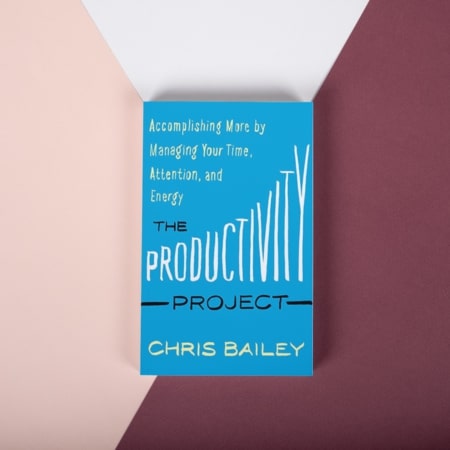
“The Productivity Project” by Chris Bailey is a book that explores the science of productivity and how we can use this knowledge to accomplish more in our lives. The book presents a year-long productivity experiment that the author conducted on himself, during which he tested different productivity techniques and strategies.
The book is full of practical advice and insights from the author’s experiment, as well as case studies of people who have successfully implemented these techniques. By understanding the science of productivity and using these techniques to manage
FAQ

Q: Why should I read time management books?
A: Reading time management books can help you develop better time management skills, prioritize tasks, increase productivity, reduce stress, and ultimately achieve a better work-life balance. These books provide insights, techniques, and strategies from experts that can be applied to your personal and professional life.
Q: Can these books help me manage my time better even if I have a busy schedule?
A: Yes, these books are designed to help individuals with busy schedules develop effective time management strategies. They offer practical tips and techniques that can be easily implemented, regardless of how packed your daily routine is.
Q: Which book is best for someone new to time management?
A: “Getting Things Done: The Art of Stress-Free Productivity” by David Allen is a great starting point for beginners. This book introduces a comprehensive and easy-to-follow system for managing tasks and time, which can be adapted to suit different lifestyles and work environments.
Q: Are these time management books suitable for entrepreneurs?
A: Yes, these books are suitable for entrepreneurs and can help them develop effective time management strategies, prioritize tasks, and achieve a better work-life balance. Many of the authors are successful entrepreneurs themselves, offering valuable insights and advice from their own experiences.
Q: Which book is best for improving focus and concentration?
A: “Deep Work: Rules for Focused Success in a Distracted World” by Cal Newport is an excellent choice for those looking to improve their focus and concentration. This book offers practical advice on how to develop deep work habits, eliminate distractions, and prioritize important tasks.
Q: Can these books help me develop better habits?
A: Yes, many of these books, such as “Atomic Habits” by James Clear, focus on habit formation and breaking bad habits. By implementing the strategies and techniques presented in these books, you can develop better habits that will improve your overall time management and productivity.
Q: Are these books suitable for students?
A: Absolutely. These books can be helpful for students who want to improve their time management skills, prioritize tasks, and achieve academic success. Concepts and techniques discussed in these books can be applied to studying, completing assignments, and preparing for exams.
Q: Can I read these books in any order?
A: While you can read these books in any order, it might be helpful to startwith books that are more beginner-friendly, such as “Getting Things Done” by David Allen or “The One Thing” by Gary Keller and Jay Papasan. As you become more familiar with time management concepts, you can move on to more advanced books, like “Deep Work” by Cal Newport or “Essentialism” by Greg McKeown.
Q: How can I implement the strategies from these books into my daily life?
A: To implement the strategies from these books, start by selecting one or two techniques that resonate with you. Gradually incorporate them into your daily routine and observe the impact on your productivity and time management. Remember that consistency is key, and it may take some time to see significant improvements.

Q: Are these books suitable for professionals in any field?
A: Yes, these books are suitable for professionals across various fields, as the time management principles and techniques discussed can be applied to any work environment. By implementing these strategies, professionals can increase their productivity, reduce stress, and achieve a better work-life balance.
Q: Can these books help me find more time for my hobbies and personal life?
A: Yes, by applying the time management strategies and techniques found in these books, you can free up more time for your hobbies and personal life. Effective time management can help you create a balanced life where you can enjoy both work and personal interests.
Q: Are audiobook versions of these books available?
A: Yes, most of these books are available in audiobook format through platforms like Audible, Apple Books, or Google Play Books. Audiobooks can be a great way to consume the content if you have a busy schedule or prefer listening over reading.
Q: How can I stay motivated to apply the time management techniques I learn from these books?
A: To stay motivated, start by setting realistic goals and tracking your progress. Celebrate small wins and be patient with yourself as you implement new strategies. It may also be helpful to join online communities, forums, or social media groups where you can share your experiences and learn from others who are also working on improving their time management skills.
Q: Can I use these books to improve my team’s time management skills at work?
A: Definitely. Many of the principles and techniques discussed in these books can be applied at the team or organizational level. Consider sharing the books with your team or organizing a book club or discussion group to collectively learn and implement time management best practices. This can lead to improved productivity and a more efficient work environment.

